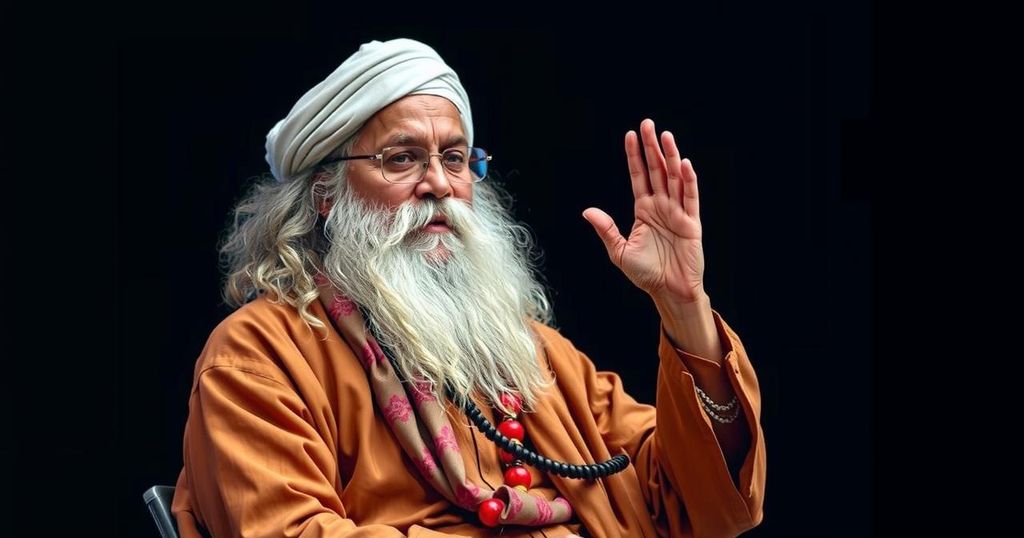Sadhguru’s Urgent Message on Soil Health in Post-Trump America

Sadhguru urges Americans to prioritize soil health following Trump’s victory, emphasizing its critical role in livelihoods, nutrition, and migration. He warns that soil degradation poses grave threats, advocating for ecological considerations to align with economic imperatives. His focus is on the urgent need to restore soil quality to foster sustainable agriculture and reduce immigration pressures.
Sadhguru, the renowned Indian spiritual leader and environmental advocate, has a crucial message for the American populace following Donald Trump’s electoral victory, focusing prominently on the dire state of soil health. Present at COP29 in Baku, Azerbaijan, Sadhguru articulated the alarming reality of soil degradation, which affects more than half of the world’s soil resources. He emphasized that this degradation leads to loss of farmer livelihoods, nutritional deficiencies in food, and increased migration, underscoring the necessity of addressing these issues. However, he expressed concern that the American focus post-election may lean towards economic stability, given Trump’s historical opposition to stringent environmental regulations. Sadhguru posited that the health of soil should be prioritized over economic factors such as fuel costs, explaining that soil is integral to sustaining life on earth due to its complex ecosystems. He cautioned that the degradation of soil could lead to what he termed “soil extinction,” posing a fundamental threat to survival. He contended that economic concerns must be alleviated for Americans to embrace ecology in political discourse, advocating for a symbiotic relationship between economic improvement and ecological stewardship. He stated, “If you want to own agricultural land, a minimum of 3 percent organic content must be maintained,” reflecting the United Nations’ standards for soil health. Moreover, Sadhguru highlighted that soil quality directly affects food nutrition, asserting that modern agricultural practices have severely diminished organic content in soil due to excessive reliance on chemical fertilizers. He lamented, “Not a single nation on the planet has a minimum of 3 percent organic content as its average,” which illustrates the global inadequacy in maintaining soil health. Furthermore, he urged the American populace to cultivate self-sufficiency through rich soils, which would consequently reduce immigration pressures. Sadhguru concluded with a profound reminder that soil is a legacy requiring responsible stewardship for future generations, underscoring its importance beyond mere property ownership.
The ongoing discourse surrounding soil health has gained prominence amidst global environmental changes and the urgent need for sustainable agricultural practices. Sadhguru’s emphasis on soil rejuvenation aligns with broader conversations at international conferences like COP29. The serious implications of soil degradation, including diminished agricultural productivity and nutritional quality, are increasingly pertinent as they intersect with pressing issues of economic stability and migration. Furthermore, the political landscape in America reflects differing priorities on economic growth versus environmental conservation, complicating the pursuit of holistic solutions to ecological challenges.
In conclusion, Sadhguru’s insights serve as a critical reminder that the health of our soil is inextricably linked to our overall well-being and the future of our planet. His call to action emphasizes the need for individuals and leaders alike to address soil degradation as a fundamental priority. As he articulates the relationship between soil health and vital issues such as nutrition and immigration, it becomes evident that a collective effort is required to restore and maintain the integrity of our earth’s most essential resource.
Original Source: www.newsweek.com







